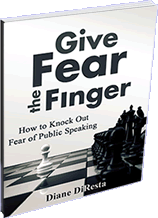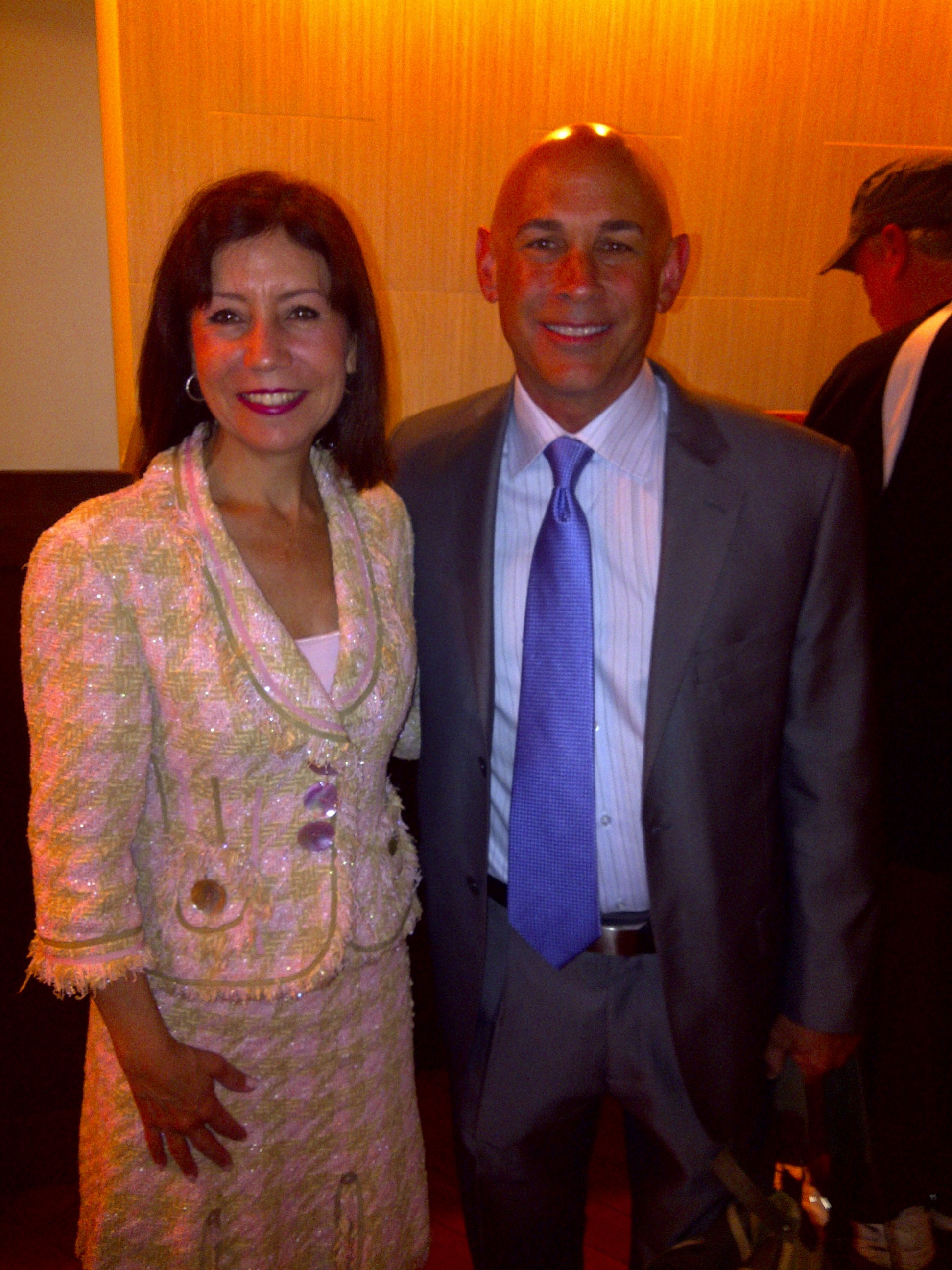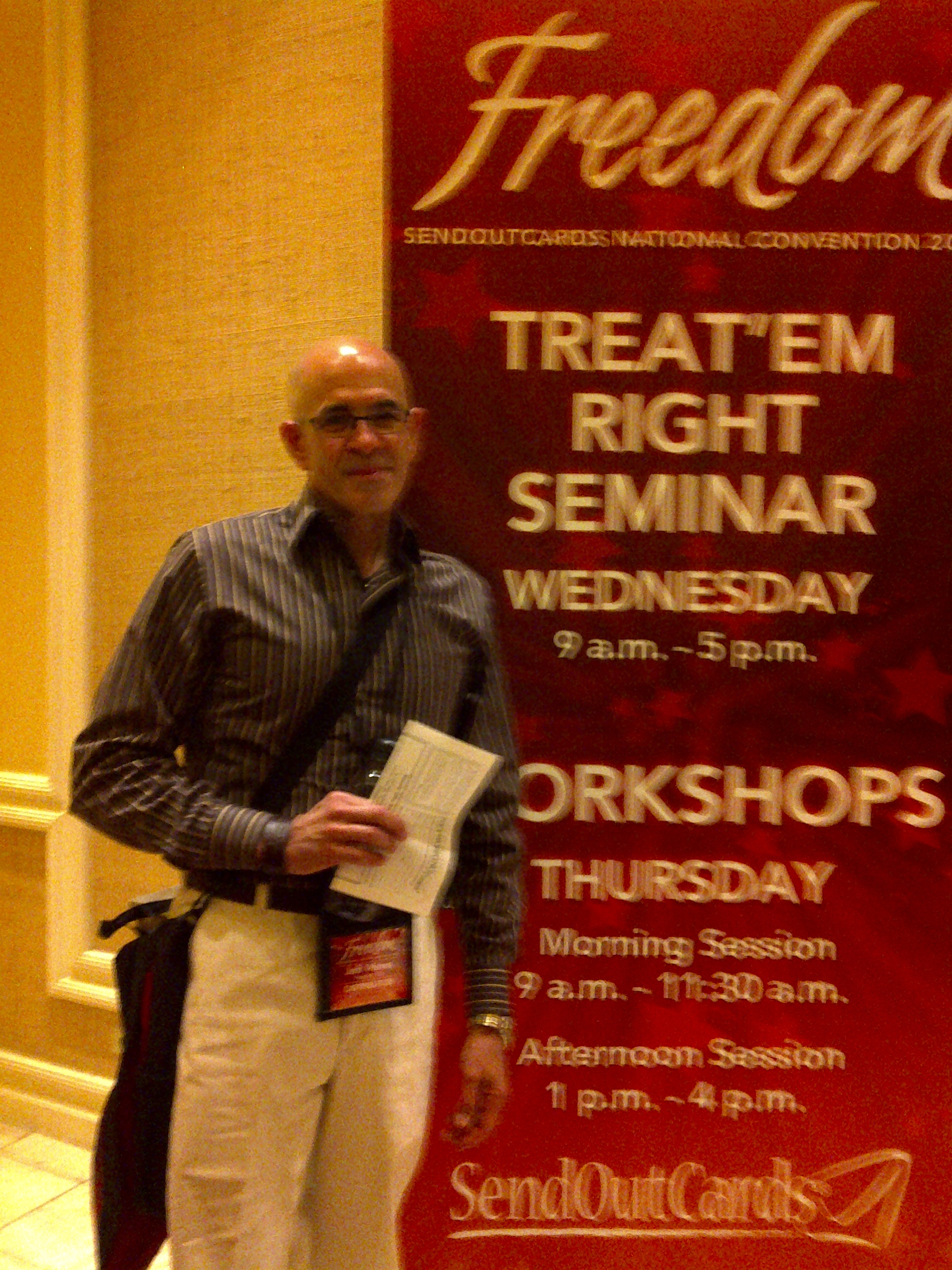 FEAR means False Evidence Appearing Real. I once said that to a group of people and a man in the audience retorted, "That's your definition? My definition is 'Forget everything and run!'" (That's the clean version. He actually used another F word).
But isn't it true? We abandon our rational mind and allow the amygdala or reptile brain to take over. This is the place where fear resides. Our eyes first scan for threat. For many public speakers, an audience of strangers is threatening. And that puts them in a state of fear. I discovered that nervous public speakers live in the future of wild imaginings. They focus on what could go wrong. "I hope I don't trip." "What if I lose my train-of-thought?"
FEAR means False Evidence Appearing Real. I once said that to a group of people and a man in the audience retorted, "That's your definition? My definition is 'Forget everything and run!'" (That's the clean version. He actually used another F word).
But isn't it true? We abandon our rational mind and allow the amygdala or reptile brain to take over. This is the place where fear resides. Our eyes first scan for threat. For many public speakers, an audience of strangers is threatening. And that puts them in a state of fear. I discovered that nervous public speakers live in the future of wild imaginings. They focus on what could go wrong. "I hope I don't trip." "What if I lose my train-of-thought?"
Confident public speakers live in the present. They focus on the message and engage the audience. They know how to access their pre-frontal cortex, the part of the brain responsible for rational thinking.
Research shows that CONFIDENCE TRUMPS COMPETENCE. This explains why the confident person who knows less than you, gets promoted. Yes, confidence accounts for more success than knowledge or skills. Many years ago I was bilked out of $30,000 dollars from my bank account. (This was before online banking). Using a fake check, the perpetrator approached the teller in every branch and cashed the check made out to his name. When the detective questioned the bank tellers, they remembered him as "very smooth, confident." Luckily, the bank replaced my funds but we never found the culprit. He may not have been on a stage, but his platform was a teller's window. He inspired trust with his confidence.
The meaning of the word confidence comes from "con" meaning "from" and "fidere" meaning "to trust." It seems that confidence comes from trusting yourself and trusting others. A confident public speaker has a sense of trust-in the message, the audience and oneself.
How do you gain trust if you approach the platform and feel fear? You give fear the finger. But not in the way you think!
My new ebook will show you a way to short circuit anxiety by activating a special spot that few people know. Give Fear the Finger is filled with exercises, tips and techniques to move you from fear of public speaking to confidence on any platform.
Avoiding public speaking is career suicide. You no longer have to submit to fear. Confidence is closer than you think. It's right there in your hands. And it's available now. You can be confident and take center stage in your career and your life.







